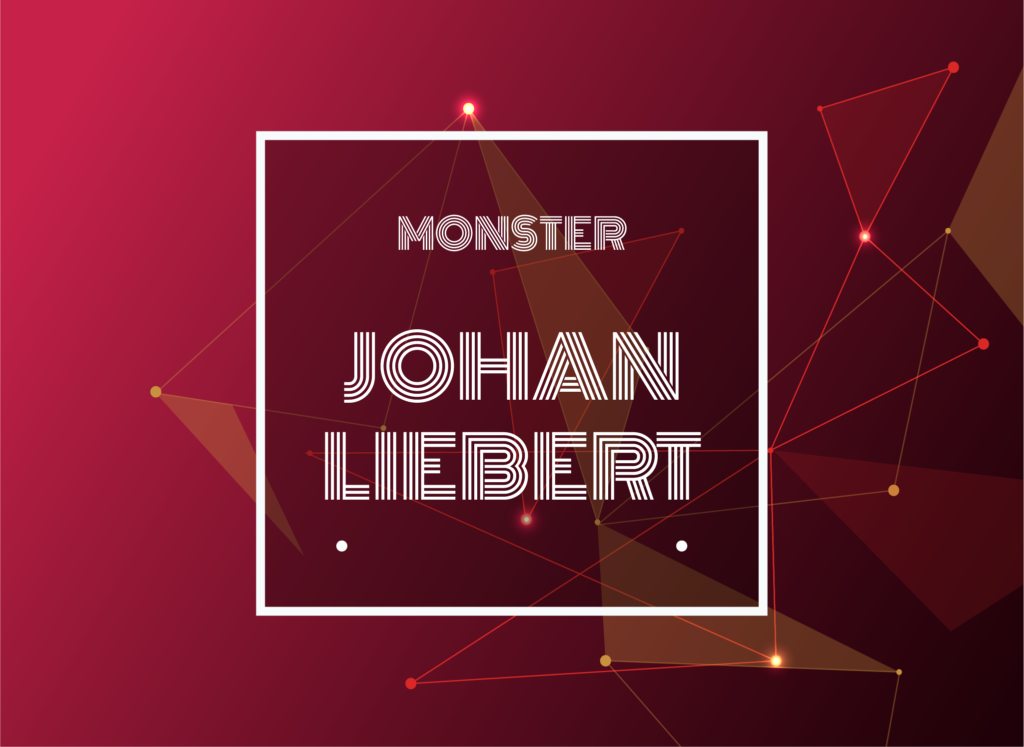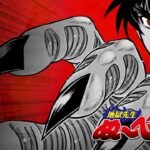Please note: This article contains spoilers for “Monster.” Proceed with caution.
Naoki Urasawa’s “Monster” is a masterpiece that has captivated audiences with its psychological depth and intricate storytelling. Despite being an underrated gem in the anime and manga world, it has received high praise for its well-crafted narrative and complex characters. At the heart of this gripping tale is Johan Liebert, a character whose enigmatic presence leaves an indelible mark on readers and viewers alike. In this article, we delve deep into Johan’s character, exploring the captivating allure and profound terror he embodies.
Who Is Johan Liebert?
The Calm Facade Hiding a Sinister Reality
Johan Liebert appears as a refined and gentle young man, possessing a calm demeanor and exceptional intelligence that effortlessly draws people in. His polite manners and articulate speech make him seem trustworthy and approachable. However, beneath this polished exterior lies a cold-blooded psychopath, a nihilistic figure who embodies the darkest aspects of human nature. Johan masterfully deceives others, manipulating their psyches to lead them toward ruin. He serves as a mirror reflecting the potential for evil that exists within humanity.
A Special Bond with His Twin Sister
Central to Johan’s character is his complex relationship with his twin sister, Anna Liebert (later known as Nina Fortner). Johan harbors deep, special feelings toward her, and she is the only person to whom he reveals glimpses of his true self. Despite being fraternal twins, their resemblance is uncanny; when Johan cross-dresses, they become virtually indistinguishable. Remarkably, he can even mimic Anna’s voice perfectly, further blurring the lines between their identities.
Johan’s Extraordinary Abilities and Dark Past
Unparalleled Intelligence and Memory
Johan’s intellect far surpasses that of ordinary individuals. While enrolled at the prestigious University of Heidelberg’s Law Faculty, he consistently achieves perfect scores in all subjects, showcasing a prodigious understanding of complex legal concepts. His near-perfect memory allows him to recall vast amounts of information with ease. Fluent in multiple languages—including German, English, French, Latin, and Czech—he wields language effortlessly, often utilizing it as a tool in his manipulations.
Mastery of Psychological Manipulation
His insight into the human psyche is nothing short of extraordinary. Johan can instantly discern a person’s thoughts, desires, and vulnerabilities, enabling him to manipulate them skillfully and drive them toward self-destruction. Rarely does he dirty his own hands; instead, he orchestrates events from the shadows, pulling strings like a puppeteer. His methods are akin to those of a cult leader, inspiring blind devotion from some and utter terror in others.
A Past Shrouded in Darkness
Born in turbulent times in East Germany, Johan’s childhood was marred by trauma. He was a subject in the ominous human experimentation project known as “Kinderheim 511”—a facility aimed at creating the perfect soldiers by eradicating emotion and individuality. The brutal conditioning he endured there stripped him of empathy and instilled in him a cold, calculating nature. This harrowing past profoundly influences his motivations and actions throughout the series.
The Blood-Stained Path and Ties with Dr. Kenzo Tenma
A Fateful Encounter Leading to Tragedy
The lives of Johan and Japanese neurosurgeon Dr. Kenzo Tenma become entwined following a pivotal event. After the mysterious murder of the Liebert family—an East German couple who defected to West Germany—Johan and his sister Anna are found at the scene. Johan, gravely wounded by a gunshot to the head, is saved by Dr. Tenma, who chooses to operate on him over the town’s mayor, defying hospital orders. This moral decision sets off a chain of events: shortly after, several senior doctors are murdered, and Johan disappears without a trace. Unbeknownst to Tenma, he has saved the life of a monster.
The Emergence of a Serial Killer
Nine years later, a series of gruesome murders targeting middle-aged couples across Germany surfaces, all pointing back to Johan. He ingratiates himself into the homes of lonely couples, posing as a dutiful and charismatic son. Once he gains their trust, he ruthlessly murders them before moving on to his next victims. These killings serve multiple purposes: they are a means for Johan to erase any traces of his existence and a way to explore his nihilistic views by extinguishing lives he deems meaningless.
Unraveling the Past and Crafting the Ultimate Plan
Driven by a desire to understand his origins, Johan relentlessly pursues those connected to his past, including former operatives of shadowy organizations. He manipulates and often eliminates anyone who might hold pieces of the puzzle. His ultimate goal is the complete annihilation of his existence—a concept he refers to as a “perfect suicide.” As part of this harrowing plan, he orchestrates a massacre in the quiet town of Ruhenheim, intending to erase all remnants of his past and test the depths of human despair.
Peering into Johan’s Inner World and Motivations
The Tragedy with His Mother and Loss of Identity
A core element of Johan’s psychological turmoil stems from a traumatic childhood event involving his mother. Faced with an impossible choice imposed by sinister forces—to surrender one of her twins for experimentation—his mother is forced to decide between Johan and Anna. The ambiguity over who was chosen and why shatters Johan’s psyche. Was he the one abandoned or the one saved? This uncertainty erodes his sense of self, leading to a profound identity crisis and deep-seated abandonment issues that fuel his destructive tendencies.
Embracing the “Nameless Monster”
Johan identifies himself with the story of the “Nameless Monster,” a children’s book that serves as a recurring motif in the series. The tale mirrors his own life—a being in search of identity, consuming others in a futile attempt to fill the void within. By embodying this nameless monster, Johan becomes the personification of human darkness—the innate violence and destructiveness that can reside in anyone. He seeks to impose his nihilistic worldview onto others, orchestrating tragedies to prove the meaningless of existence.
An Obsession with the Perfect Suicide
Johan’s endgame is the total erasure of his existence, achieved by eliminating all who know him and orchestrating his own death in a manner that leaves no trace. This obsession with a perfect suicide is rooted in his lifelong void of identity and purpose. It’s a catastrophic plan that highlights his desire not just to die, but to unexist—to wipe away any evidence that he ever lived, as if to confirm his belief that life is inherently meaningless.
The Climactic Final Confrontation
A Tense Showdown with Dr. Tenma
The narrative reaches its peak as Johan sets his deadly plan into motion in Ruhenheim. Amidst chaos and bloodshed, Dr. Tenma and Nina arrive, determined to stop the impending catastrophe. In a gripping confrontation, Johan manipulates circumstances to force Tenma into a position where he must choose whether to kill him. Johan implores Tenma to shoot, attempting to make him an agent of his self-destruction and to corrupt Tenma’s moral integrity.
The Unraveling of Johan’s Conviction
In this crucial moment, Johan’s unwavering facade begins to crack. When Tenma hesitates, refusing to become a murderer, Johan experiences a rare moment of vulnerability. He questions Tenma, asking, “Why did our mother abandon me?” This poignant inquiry reveals the tormented child still residing within the monster, exposing his deep-seated need for understanding and perhaps redemption.
The Ambiguous Fate of Johan Liebert
As tensions reach a breaking point, a shot is fired—not by Tenma, but by a villager caught in the crossfire. Johan is critically wounded. Demonstrating his unwavering commitment to saving lives, Dr. Tenma performs surgery on Johan once again, preserving the life he once saved years before.
After recovering, Johan vanishes from the hospital without a trace. The final scenes depict his empty hospital bed and an open window, leaving his fate open to interpretation. Has he embarked on a new path, or is he poised to continue his descent into darkness? The ambiguity lingers, prompting readers and viewers to ponder the true nature of his character.
What Does Johan Liebert Represent?
A Reflection of Humanity’s Darkest Corners
Johan serves as a chilling embodiment of the latent darkness within humanity. His character forces us to confront uncomfortable truths about the capacity for evil that exists in society and within individuals. He highlights how trauma and neglect can warp a person, and how charisma and intelligence can be wielded for malevolent purposes.
The Search for Identity and Meaning
At its core, Johan’s story is a tragic exploration of identity and the fundamental human desire for purpose. His actions are extreme manifestations of a quest to understand his place in the world. Through his nihilism, the narrative questions what happens when someone concludes that life has no inherent meaning—a theme that resonates deeply in philosophical discussions.
The Possibility of Redemption
Despite the darkness he embodies, glimpses of Johan’s humanity suggest that redemption is not entirely beyond reach. His moment of vulnerability with Tenma hints at an internal struggle and a buried desire for connection. The narrative invites us to consider whether even those who have strayed far from humanity can find their way back.
Johan Liebert is much more than a villain; he is a complex symbol of psychological and societal issues. Through his character, “Monster” delves into profound themes such as the nature of evil, the impact of trauma, and the quest for identity. His enigmatic presence challenges readers and viewers to reflect on the depths of the human psyche and the factors that shape an individual.
The story’s intricate portrayal of Johan leaves a lasting impact, sparking discussions and analyses that extend beyond the realm of manga and anime. Naoki Urasawa crafts a narrative that is not only thrilling but also thought-provoking, ensuring that Johan Liebert remains one of the most compelling characters in modern storytelling.
If you haven’t experienced “Monster” yet, it’s a series that deserves your attention. Its layered plot and deep psychological themes make it a standout work that continues to be relevant and impactful.







